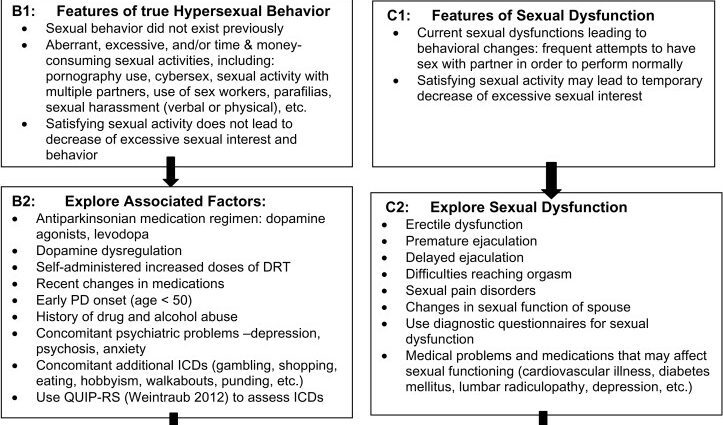Contents
Hypersexuality: a pathology or a lifestyle choice?
Hypersexuality manifests itself in addictive sexual behavior, which very often has harmful consequences on the subject’s sentimental and intimate relationships. What is this sexual disorder and how can it be treated?
Hypersexuality: what definition to give?
Hypersexuality is more commonly referred to as nymphomania, or sex addiction in common parlance. It is in fact a sexual behavior which can concern the men as the women, the definition of which is not really fixed. Sexologists agree that it is a sexual disorder, manifested by recurrent sexual urges and behaviors, numerous and pressing, as well as a lack of control over sexual thoughts and of the resulting behaviors. A patient suffering from hypersexuality presents an abundant libido and / or sexuality, as well as sexual behaviors which lead to a perpetual search for sexual pleasure.
Is hypersexuality a disease?
This disorder is seriously taken into account by the medical profession, whether sexologists, psychologists, etc. It is referred to as “excessive sexual activity”, and is classified under the category of “Sexual dysfunction, not due to organic disorder or disease” in the International Classification of Diseases (ICD-10), which is published by WHO. On the other hand, hypersexuality is not listed as a disease in DSM 5, the reference manual of American mental pathologies, which lists all disorders with the definition that corresponds to them. Indeed, a lack of convincing studies on the subject has prevented hypersexuality from being considered a disease in this repository.
Hypersexuality, a common sexual disorder?
Hypersexuality is a sexual disorder that can often be compared to disorders in the same category such as the failure of the genital response (impotence), or even frigidity (the absence or loss of sexual desire). In addition, it is extremely complicated to have exact figures on the number of men and women suffering from hypersexuality, since the border between this disorder and a sexuality considered excessive is difficult to establish. To date, it is estimated that this disorder affects between 3 and 6% of the population, and mainly affects men.
Where is the line between sexual disorder and love of sex?
It is sometimes difficult to draw a line between heavy consumption and excess. Here, the border between an intense sex life and an “excessive” consumption of sex lies in the addictive dimension. Indeed, it is difficult to quantify a “normal” consumption of sex, the “normal” number of partners, sexual relations, fantasies, etc. Sex is a personal matter, which varies from person to person, and does not meet any norms or rules. On the other hand, it is of the order of the disease if it is synonymous with frustration, addiction, compulsive behavior and negative consequences on one’s social life.
Can you be hypersexual by choice?
You are never sick by choice. Hypersexuality is qualified as a “lifestyle choice” when it is not a question of a sexual disorder, but of a lifestyle, of a way of approaching sex. As we have seen, hypersexuality as a disease has negative consequences on the life and even the health of patients. Indeed, the person suffering from hypersexuality will spend his time seeking sexual pleasure, to the detriment of his social interactions, his married life, etc. The effort and time involved in the pursuit of sexual pleasure induces disengagement at other levels of private life. In fact, to say that a person is hypersexual by choice would be underestimating their disorder. On the other hand, in the case of a person who loves sex, practices it often, and attaches great importance to sexual pleasure, but without being in dependence and addiction, it is indeed a choice of life, which is unique to each.
How to treat hypersexuality?
Like all sexual problems, if you think you have hypersexuality, it is best to see a doctor. The medical profession will be able to detect the signs of the pathology, and define with you a strategy to treat the cause and the symptoms, and help you find a healthy and peaceful sex life. There are several causes that can explain hypersexual behavior: psychological trauma linked to affection, love or desire, but also an emotional shock such as depression, etc. In rare cases, a neurological cause is sought, if the patient seems to have the pathology all of a sudden when he was not before.










